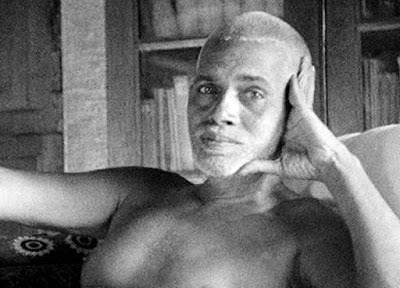Who am I , Questions by Sivaprakasam Pillai and Bhagawan answering forming the essence of His Teachings.
8. Sivaprakasam Pillai: What is the nature of the mind?
Bhagawan : Mind is merely thoughts. It is a form of energy. It manifests itself as all the objects (i.e. the world). When the mind sinks within the Self i.e. the Sivaswarupa, then the SELF is realised. When the mind issues out the world appears, and the Self is no realised.
9.S.P : How will the mind vanish?
Bhagawan : Only by the pursuing the enquiry ' Who am I?'. Though this enquiry is a mental operation , it destroys all other mental operations and finally itself vanishes, just as the stick with which the funeral pyre is kindled, is reduced to ashes after the pyre and corpses are burnt. Then we attain knowledge or realisation of Self. Then the thought 'I' (personality) is dissolved; breathing and other activities of prana are subdued. Both personality and breathing have a common source. Whatever you do, do without egoism, without the feeling, "I" am doing this ". When one reaches that state, even ones wife will be seen by him as the Mother of the universe. True Bhakthi is the surrender of ones ego into the Self.
10.S.P: Are there not other methods to make the mind disappear?
Bhagawan : Except enquiry, there is no other adequate method. If the mind is lulled by other means ,it keeps quiet for awhile, and again jumps up and leaps back to its former activity.
11. S.P: But these instincts and innumerable self-preserving and other latent tendencies in us , when will they be subdued?
Bhagawan : The more often you withdraw into the Self, the more these tendencies pale off ; and finally they leave you.
12: S.P: Is it indeed possible to root out all these tendencies, which have soaked into our minds, generation after generation?
Bhagawan : Never yield room for doubts of that sort in your mind. But firmly resolve and dive into the Self. The mind constantly directed by the above inquiry into the Self, becomes dissolved , and transformed in the end into the Self. Whenever you feel any doubt, do not try to clear the doubt , but try to know him who feels the doubt.
13: S.P: How long should go on with this inquiry?
Bhagawan : It is needed so long as there is the least traces of tendencies in the mind to create thoughts. So long as your enemies occupy a citadel, they will be issuing out. If you kill each, as he issues out, the citadel will be captured by you in the end. Similarly each time thoughts rear their heads and issue out , crush them by the above enquiry. This process of crushing out all thoughts a their birthplace or place of origin is termed vairagya. Hence inquiry is needful right up to the time of Self-realisation. what is required is a continuous and uninterrupted "thought" of real Self.
14: S.P : Is not all this , the universe and all that takes place therein , the result of Iswara's will ; and if so why should God will thus?
Bhagawan : God has no purpose. He is not fettered by any action. The world's activities cannot affect him. Let us take the analogies of the sun and space to make this clear. The sun arises without desire, purpose or effort. But directly the sun rises , numerous activities take place on the earth. The lens placed in the rays produces fire in its focus; the bud of the lotus blossoms, water evaporates, and every living object on earth enters upon , maintains and finally drops its activity. But, the sun is not affected by all such activity , as he merely maintains is nature, acts by fixed laws, has no purpose, and is , merely a witness. So it is with God. Again take the case of space or ether. Earth, water, fire
and air are all in it and have their motions and modifications therein. Yet none of these affects ether or space. the same is the case with God. God has no desire or purpose in his acts of creation, maintenance, destruction, withdrawal and salvation , to which beings are subjected. As beings reap the fruit of their acts in accordance with his laws. the responsibility for such fruit is theirs, not God's . God is not affected or bound by any acts.
SRI RAMANAYA NAMAHA






